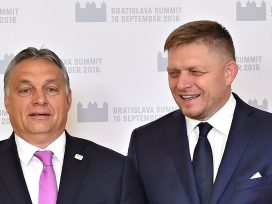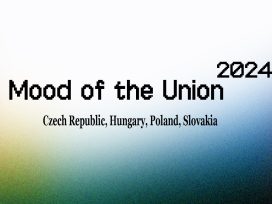Ten years of publishing and editing K&K have been a journey along unexpected paths, accompanied by joy as well as haunted by nagging doubts. What brings great pleasure, for example, is seeing each finished issue fresh from the printers, or exchanging ideas with people who are still interested in building a “republic of letters”.
At times, however, one despairs of being marginalized and being accused of elitism. Disappointed because the margin is actually where a journal like K&K belongs – considering the amount of junk produced and consumed in various forms of media. The topics covered in K&K should be debated in a democratic society and become part of mainstream discourse. From talking to our fellow publishers from other countries, it appears that avoidance of a thorough analysis of the most urgent topics of political and public debate is a global problem. Instead of encouraging debate, journals like ours are often accused of elitism (nowadays a curse word), because what we debate interests only an educated minority.
Fortunately, there are groups of individuals who have not succumbed to the lure of short-span news, who refuse to accept the boundaries and barriers created by race, gender, or politics. One such group is gathered around the internet journal Eurozine, where many European cultural journals meet, exchange articles, and debate important topics. In fact, we approached some of the people gathered around this remarkable source of wisdom, in order to seek out material for this anniversary issue.
The ten years of publishing Kritika & Kontext, from 1996 to 2006, span the turn of the century, the one most affected in our region by the exciting, turbulent, and unpredictable period of the post-communist transformation. At the beginning of a project like K&K, one inevitably has larger ambitions than one can realistically achieve. Back in 1996, the first issue promised to engage in “an archeology of critical thinking”; it was created due to “fear of ignorance of any sort as well as revulsion towards uncritical admiration of anything”. We also wished to facilitate among Slovak intellectuals a critical stance towards the many trends that engulfed Western academia so that they could participate, on equal footing, in a dialogue with their colleagues abroad. Reflecting on the ten years of publishing, we seem to have hardly made a dent into this immense, wonderful, and uncharted world of intellectual discourse. Nevertheless, what we have published may not have been in vain, for it provided readers with food for thought unique to the period and place where it was born: in Bratislava, after the fall of the Communist regime and the break-up of Czechoslovakia.
With Egon Gál and myself as editors, the second decade of Kritika will continue the exploration of themes, thoughts, and books that help us to comprehend our current condition. Our condition, like human life in general, has a certain past to remember and to explore, always facing an unknown future that is created and shaped ever anew. That future is always connected and determined by the current perception of past thoughts and actions.
www.eurozine.com and K&K
For this anniversary issue of K&K, we approached various authors and publishers connected with Eurozine to recommend articles from their journals that they deemed relevant and perhaps less appreciated than they deserved to be. Thus, we had no intention for this issue to focus on a particular theme or dossier as would be the case otherwise, yet some of our colleagues suggested articles dealing with the topic of translation. Strangely enough, I received their suggestions at just the time I was trying to negotiate permission from Milan Kundera to translate into Slovak his works written in French. I was trying to convince him that his books written in French should be translated into Slovak, in the same that they were translated, for example, into Dutch or Slovenian. He argued that Slovaks could read his books in Czech, which is true. The problem is that he does not grant permission to translate his books into Czech either, because he intends to translate them himself. Our last exchange occurred soon after his latest novel L’Identité, was illegally translated into Czech and distributed on the internet. To make things worse, it was translated from English disregarding any principles this great author maintains about the matter of translation. The last I heard from Mr. Kundera, he said he was thinking about a possible translation into the Slovak language.
In the meantime, I ran into another article about translation written by Erica Johnson Debeljak, who begins her analysis with the discussion of Kundera’s Immortality. After all these coincidences, I approached our New York friend and frequent contributor, George Blecher, to elaborate on a statement he once made: “A translation can only be better or worse than the original, never just as good.” With his contribution, our dossier on translation was completed.
In addition, we are also publishing an article recommended by the publisher of the Austrian journal Wespennest, Walter Famler, about an Austrian Nazi psychiatrist who after the war survived unharmed even in his prominent position, protected by the Austrian legal and peer establishment. The author of the article is an Austrian medical doctor, Werner Vogt, who reveals the horrendous deeds of Dr. Heinrich Gross during the war, and his successful survival afterwards. It is a very central European story touching on collaboration, impunity, and continuous attempts to erase historical memories of criminal or bestial acts during the war, and during the twentieth century in general.






